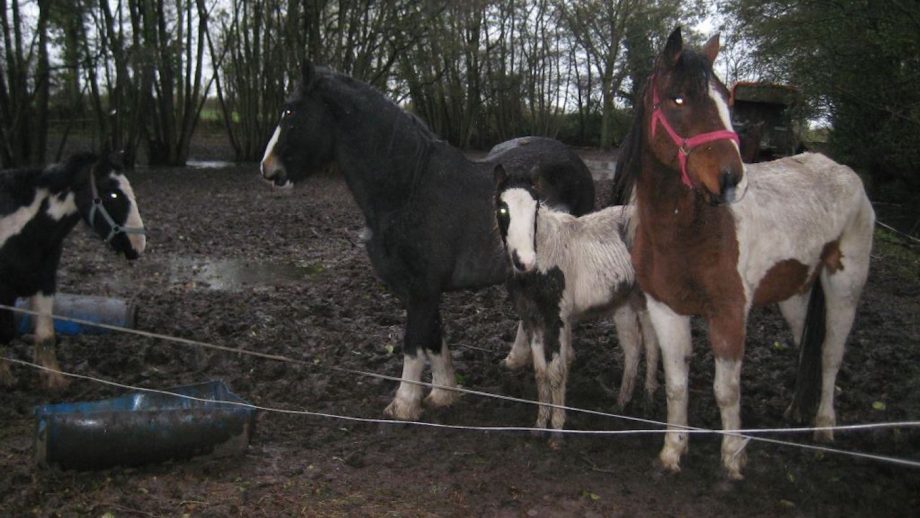The new code applies to Wales, while Scotland is due to go to public consultation over related proposals —and there are fears England may be “left behind”. H&H finds out more...
A NEW voluntary code of practice for animal welfare establishments in Wales will form the basis for future regulation and aim to stop “problematic” sanctuaries and rescues – as concerns are raised England is “in danger” of being left behind.
The code, published by the Welsh government and drafted by the Animal Welfare Network for Wales (AWNW) whose members include Redwings, World Horse Welfare and RSPCA Cymru, outlines a framework for rescues and sanctuaries to deliver “exemplary levels” of care and encourage the highest standard of husbandry. It is hoped sanctuaries and rescues will voluntarily follow these guidelines.
{"content":"PHA+VGhlIGNvZGUgZGVmaW5lcyBhbiBhbmltYWwgd2VsZmFyZSBlc3RhYmxpc2htZW50IGFzIGEgcGVyc29uIG9yIG9yZ2FuaXNhdGlvbiB0aGF0IHJlY2VpdmVzIHZ1bG5lcmFibGUgYW5pbWFscyB3aXRoIGEgdmlldyB0byByZWhhYmlsaXRhdGluZyBhbmQgZWl0aGVyIHJlaG9taW5nIG9yIHJlbGVhc2luZyAoaW50byB0aGUgd2lsZCkgb3IgcHJvdmlkaW5nIGxvbmctdGVybSBjYXJlLjwvcD4KPHA+TmF0aW9uYWwgRXF1aW5lIFdlbGZhcmUgQ291bmNpbCBjaGFpcm1hbiBOaWMgRGUgQnJhdXdlcmUsIHdobyBhbHNvIGNoYWlycyB0aGUgQVdOVyBtYW5hZ2VtZW50IGNvbW1pdHRlZSwgdG9sZCA8ZW0+SCZhbXA7SDwvZW0+IGl0IHdhcyByZWNvZ25pc2VkIHRoYXQgc2Vjb25kYXJ5IGxlZ2lzbGF0aW9uIHVuZGVyIHRoZSBBbmltYWwgV2VsZmFyZSBBY3Qgd2FzIHJlcXVpcmVkIHRvIHNldCBzdGFuZGFyZHMgZm9yIHJlc2N1ZSBjZW50cmVzLjwvcD4KPHA+4oCcV2Ugd2FudCB0byBzaHV0IGRvd24gdGhlIG9uZXMgdGhhdCBkbyBhIGJhZCBqb2IgYmVjYXVzZSBhbmltYWxzIHN1ZmZlci4gV2UgYXJlIG5vdCBnb2luZyB0byBoaWRlIGZyb20gdGhlIGZhY3QgdGhhdCB0aGlzIGlzIG5vdCBhYm91dCBzYXlpbmcgYWxsIHJlc2N1ZXMgYXJlIGdvb2Qg4oCTIHRoaXMgaXMgYWJvdXQgc2F5aW5nIHdlIGhhdmUgc29tZSByZWFsbHkgcHJvYmxlbWF0aWMgb25lcyB3aGVyZSB0aGVyZSBhcmUgc2VyaW91cyB3ZWxmYXJlIGNvbmNlcm5zIGFuZCB0aGV5IG5lZWQgdG8gZWl0aGVyIGltcHJvdmUgb3Igc3RvcCzigJ0gaGUgc2FpZC48L3A+CjxwPjxkaXYgY2xhc3M9ImFkLWNvbnRhaW5lciBhZC1jb250YWluZXItLW1vYmlsZSI+PGRpdiBpZD0icG9zdC1pbmxpbmUtMiIgY2xhc3M9ImlwYy1hZHZlcnQiPjwvZGl2PjwvZGl2PjxzZWN0aW9uIGlkPSJlbWJlZF9jb2RlLTMxIiBjbGFzcz0iaGlkZGVuLW1kIGhpZGRlbi1sZyBzLWNvbnRhaW5lciBzdGlja3ktYW5jaG9yIGhpZGUtd2lkZ2V0LXRpdGxlIHdpZGdldF9lbWJlZF9jb2RlIHByZW1pdW1faW5saW5lXzIiPjxzZWN0aW9uIGNsYXNzPSJzLWNvbnRhaW5lciBsaXN0aW5nLS1zaW5nbGUgbGlzdGluZy0tc2luZ2xlLXNoYXJldGhyb3VnaCBpbWFnZS1hc3BlY3QtbGFuZHNjYXBlIGRlZmF1bHQgc2hhcmV0aHJvdWdoLWFkIHNoYXJldGhyb3VnaC1hZC1oaWRkZW4iPg0KICA8ZGl2IGNsYXNzPSJzLWNvbnRhaW5lcl9faW5uZXIiPg0KICAgIDx1bD4NCiAgICAgIDxsaSBpZD0ibmF0aXZlLWNvbnRlbnQtbW9iaWxlIiBjbGFzcz0ibGlzdGluZy1pdGVtIj4NCiAgICAgIDwvbGk+DQogICAgPC91bD4NCiAgPC9kaXY+DQo8L3NlY3Rpb24+PC9zZWN0aW9uPjwvcD4KPHA+4oCcV2XigJl2ZSBnb3QgdGhpcyBibGFjayBob2xlOyB0aGUgQW5pbWFsIFdlbGZhcmUgQWN0IGlzIGEgdmVyeSBwb3dlcmZ1bCB0b29sIGlmIHlvdSBjYW4gZ2V0IGludG8gYSBwcmVtaXNlcyBidXQgb2Z0ZW4gdGhlIG93bmVycyBkb27igJl0IGxldCB5b3Ugc28gdGhlIG9ubHkgdGltZSB3ZSBmaW5kIG91dCBhIHNhbmN0dWFyeSBpcyBhIHByb2JsZW0gaXMgd2hlbiBhIG1lbWJlciBvZiB0aGUgcHVibGljIHNwb3RzIHNvbWV0aGluZyBhbmQgY29tcGxhaW5zLiBBdCB0aGF0IHBvaW50IHlvdeKAmXZlIGFscmVhZHkgaGFkIGFuaW1hbHMgc3VmZmVyaW5nIGJhc2ljIG5lZ2xlY3Qgb3Igd29yc2Uu4oCdPC9wPgo8cD5NciBEZSBCcmF1d2VyZSwgd2hvIGlzIGFsc28gUmVkd2luZ3PigJkgaGVhZCBvZiB3ZWxmYXJlLCBzYWlkIHRoZSBuZXcgY29kZSB0b29rIOKAmHRoZSBiZXN0IG9m4oCZIGV4aXN0aW5nIGNvZGVzIG9mIHByYWN0aWNlIGNyZWF0ZWQgYnkgTkVXQywgdGhlIEFzc29jaWF0aW9uIGZvciBDYXQgYW5kIERvZyBIb21lczsgdGhlIEJyaXRpc2ggVmV0ZXJpbmFyeSBab29sb2dpY2FsIFNvY2lldHksIGFuZCB0aGUgY29kZSBvZiBwcmFjdGljZSBmb3Igc2FuY3R1YXJpZXMgaW4gSmVyc2V5LjwvcD4KPHA+4oCcSXQgaXMgYSBkeW5hbWljIHNpdHVhdGlvbiBhbmQgaGF2aW5nIHRoZSBXZWxzaCBnb3Zlcm5tZW504oCZcyBzdGFtcCBvZiBhcHByb3ZhbCByZWFsbHkgc2V0cyBwdWJsaWMgZXhwZWN0YXRpb25zIOKAkyBhbmQgaXQgaGFzIGEgbG90IG1vcmUgY2xvdXQgdGhhbiBpZiBpdCB3YXMganVzdCBhIG5ldyBORVdDIGNvZGUs4oCdIGhlIHNhaWQuIOKAnFdlIGhhdmUgc3BlbnQgdG9vIG11Y2ggdGltZSBjaGFzaW5nIGFmdGVyIHBsYWNlcyB0aGF0IHNob3VsZCBoYXZlIGJlZW4gdGhlIOKAmGhvbWUgZm9yIGxpZmXigJkgb3Ig4oCYaGFwcHkgZW5kaW5n4oCZIGZvciBhbmltYWxzLCBhbmQgaGF2ZSBlbmRlZCB1cCBiZWluZyBoZWxsIHdvcnNlIHRoYW4gdGhlIG9uZSB0aGV5IGNhbWUgZnJvbS48L3A+CjxkaXYgY2xhc3M9ImFkLWNvbnRhaW5lciBhZC1jb250YWluZXItLW1vYmlsZSI+PGRpdiBpZD0icG9zdC1pbmxpbmUtMyIgY2xhc3M9ImlwYy1hZHZlcnQiPjwvZGl2PjwvZGl2Pgo8cD5UaGF0IGp1c3Qgc2hvdWxkbiYjODIxNzt0IGhhcHBlbiwgaXTigJlzIGJlZW4gZ29pbmcgb24gdG9vIGxvbmcgYW5kIG5lZWRzIHRvIHN0b3AsIGFuZCB0aGlzIGlzIGEgcmVhbGx5IGltcG9ydGFudCBzdGVwLuKAnTwvcD4KPHA+TXIgRGUgQnJhdXdlcmUgc2FpZCB0aGUgV2Vsc2ggZ292ZXJubWVudCB3YXMg4oCcaHVnZWx5IHN1cHBvcnRpdmXigJ0gb2YgdGhlIGNvZGUsIGFuZCBub3cgdGhlcmUgd2lsbCBiZSBhIHR3by15ZWFyIHdpbmRvdyB0byBnYXVnZSBpdHMgd29yayBiZWZvcmUgcmVndWxhdGlvbiBpcyBjcmVhdGVkLiBJbiBTY290bGFuZCB0aGUgU2NvdHRpc2ggZ292ZXJubWVudCBoYXMgZ2F0aGVyZWQgZXZpZGVuY2UgYW5kIGlzIGR1ZSB0byBwdXQgZm9yd2FyZCBwcm9wb3NhbHMgZm9yIGEgcHVibGljIGNvbnN1bHRhdGlvbiBvbiBkcmFmdCByZWd1bGF0aW9ucyBvbiBhbmltYWwgd2VsZmFyZSBlc3RhYmxpc2htZW50cy48L3A+CjxkaXYgY2xhc3M9ImFkLWNvbnRhaW5lciBhZC1jb250YWluZXItLW1vYmlsZSI+PGRpdiBpZD0icG9zdC1pbmxpbmUtNCIgY2xhc3M9ImlwYy1hZHZlcnQiPjwvZGl2PjwvZGl2Pgo8cD7igJxXYWxlcyBhbmQgU2NvdGxhbmQgaGF2ZSBsZWQgdGhlIHdheSBvbiB0aGUgc2Vjb25kYXJ5IGxlZ2lzbGF0aW9uIHVuZGVyIHRoZSBBbmltYWwgV2VsZmFyZSBBY3QuIFRoZXkgaGF2ZSBiZWVuIHZlcnkgcHJvZ3Jlc3NpdmUgaW4gdGFraW5nIHRoZSBvcHBvcnR1bml0aWVzIHdoZXJlIHRoZXkgaGF2ZSBwcmVzZW50ZWQgdGhlbXNlbHZlcyzigJ0gaGUgc2FpZC48L3A+CjxwPkEgc3Bva2VzbWFuIGZvciB0aGUgUlNQQ0EgdG9sZCA8ZW0+SCZhbXA7SDwvZW0+IGl0IGlzIHdvcmtpbmcgd2l0aCB0aGUgVUsgZ292ZXJubWVudCBvbiBhIHNldCBvZiBndWlkZWxpbmVzIGZvciBhbmltYWwgcmVzY3VlcyBpbiBFbmdsYW5kLjwvcD4KPGRpdiBjbGFzcz0iYWQtY29udGFpbmVyIGFkLWNvbnRhaW5lci0tbW9iaWxlIj48ZGl2IGlkPSJwb3N0LWlubGluZS01IiBjbGFzcz0iaXBjLWFkdmVydCI+PC9kaXY+PC9kaXY+CjxwPuKAnE5vdyBXYWxlcyBoYXMgdGhlaXIgY29kZSwgRW5nbGFuZCBpcyBpbiBkYW5nZXIgb2YgYmVpbmcgbGVmdCBiZWhpbmQuIFdlJiM4MjE3O3JlIGNsb3NlbHkgbW9uaXRvcmluZyB0aGUgbGF1bmNoIG9mIHRoZSBXZWxzaCBjb2RlOyB3aGljaCB3ZSBob3BlIHdpbGwgZGVsaXZlciBjb25zaXN0ZW50IHN0YW5kYXJkcyBhdCBzYW5jdHVhcmllcy7igJ08L3A+CjxwPldvcmxkIEhvcnNlIFdlbGZhcmUgZGVwdXR5IGNoaWVmIGV4ZWN1dGl2ZSBUb255IFR5bGVyIHRvbGQ8ZW0+IEgmYW1wO0g8L2VtPiB0aGUgV2Vsc2ggY29kZSBpcyBhIOKAnHN0ZXAgaW4gdGhlIHJpZ2h0IGRpcmVjdGlvbuKAnS48L3A+CjxwPuKAnFRoaXMgdm9sdW50YXJ5IHBoYXNlIHdpbGwgYWxsb3cgdGhlIGNvZGUgdG8gYmUgdHJpYWxsZWQgb24gdGhlIGdyb3VuZCBhbmQgYW55IHdyaW5rbGVzIGlyb25lZCBvdXQgYmVmb3JlIHdlIHRhY2tsZSBvdXIgdWx0aW1hdGUgZ29hbDsgdGhhdCB0aGVzZSBlc3RhYmxpc2htZW50cyBhcmUgbGljZW5zZWQgdG8gZW5zdXJlIHRoZXkgbWVldCBtaW5pbXVtIHdlbGZhcmUgc3RhbmRhcmRzIGFjcm9zcyB0aGUgVUss4oCdIGhlIHNhaWQuPC9wPgo8ZGl2IGNsYXNzPSJpbmplY3Rpb24iPjwvZGl2Pgo8cD7igJxUaGVyZSBpcyBubyBkb3VidCBwZW9wbGUgdXN1YWxseSBoYXZlIHRoZSBiZXN0IGludGVudGlvbnMgd2hlbiBzZXR0aW5nIHVwIHJlc2N1ZXMgYnV0LCBzYWRseSwgdGhlIHJlYWxpdGllcyBhbmQgY29tcGxleGl0aWVzIGludm9sdmVkIG1lYW4gd2UgZG8gc2VlIHNpdHVhdGlvbnMgd2hlcmUgdGhleSBmYWlsIGFuZCBiZWNvbWUgd2VsZmFyZSBjb25jZXJucyB0aGVtc2VsdmVzLiBXZSBiZWxpZXZlIHRoZXNlIGd1aWRlbGluZXMgd2lsbCBlbmFibGUgdGhvc2Ugc2Vla2luZyB0byBzZXQgdXAgYSBzYW5jdHVhcnksIHJlc2N1ZSBvciByZWhvbWluZyBjZW50cmUgdG8gbWFrZSBiZXR0ZXItaW5mb3JtZWQgZGVjaXNpb25zLCBoZWxwaW5nIGVuc3VyZSB0aGV5IG9wZXJhdGUgc3VzdGFpbmFibHkgYW5kIHRoZSB3ZWxmYXJlIG9mIHRoZSBhbmltYWxzIGluIHRoZWlyIGNhcmUgaXMgcHJvdGVjdGVkLuKAnTwvcD4KPHA+Cg=="}
You might also be interested in…
Credit: RSPCA
‘Buying horses out of perceived welfare situations is not rescuing; it is creating a market for horses to receive poor
Credit: RSPCA
One horse had to be put down and another had to have his eye removed after the woman who ran
Library image.
‘In the vast majority of cases, people set up with the best intentions’
Credit: RSPCA
Stay in touch with all the news in the run-up to and throughout the major shows and events during 2025 and beyond with a Horse & Hound subscription. Subscribe today for all you need to know ahead of these major events, plus online reports on the action as it happens from our expert team of reporters and in-depth analysis in our special commemorative magazines. Have a subscription already? Set up your unlimited website access now
H&H senior news writer
Since joining H&H in 2018, Becky has covered a broad range of equestrian news including welfare matters, veterinary studies, FEI Tribunal hearings and road safety campaigns. She has also interviewed top riders including Scott Brash, John Whitaker and Ian Stark, to name just a few. Becky’s reporting has taken her to Canada for Spruce Meadows and France for Pau five-star, as well as the Royal Highland and Blair Castle International Horse Trials closer to home. She was also a key part of the remote reporting team for the Tokyo Olympics and the Europeans.





